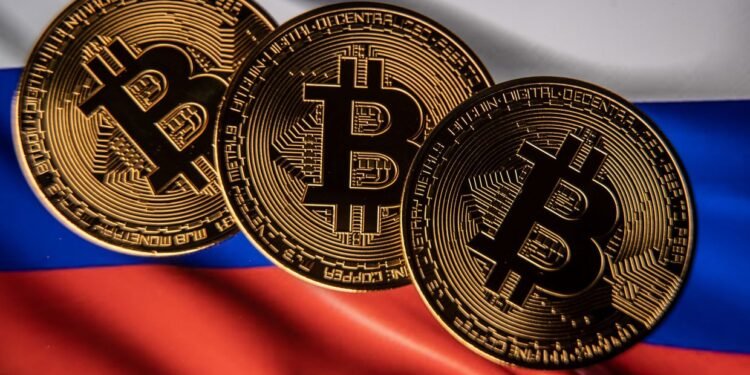Headline: Russian Companies Shift to Bitcoin Amid Sanction Pressures
Introduction: In response to escalating Western sanctions, Russian businesses are increasingly turning to Bitcoin and various other cryptocurrencies for conducting overseas transactions. This strategic move signifies a notable transformation in trade dynamics, particularly as conventional banking channels face restrictions.
Expert Insight: Anton Siluanov, the Finance Minister of Russia, verified in an interview with Russia-24 that transactions utilizing domestically mined Bitcoin are actively taking place under a pilot initiative. “Such transactions have already commenced,” he emphasized, pointing out the potential for digital currencies to assume a significant role in the global trade landscape.
Market Overview: Following the enforcement of sanctions in March 2022, which limited Russia’s access to U.S. dollar and euro transactions, there has been a substantial pivot in currency preferences for trade. Initially, the Chinese yuan emerged as the primary alternative; nevertheless, by mid-2024, reports suggested that approximately 80% of Russian transactions using yuan were either declined or sent back, mainly due to concerns from Chinese financial institutions about potential repercussions with U.S. regulators. Meanwhile, Russia has also made legal adaptations to streamline the usage of cryptocurrencies for international trade, clearly signaling a strategic response to the ongoing economic challenges.
Impact Assessment: Embracing Bitcoin and other digital assets could fundamentally reshape Russia’s trade landscape, offering a path to circumvent traditional financial systems now heavily impacted by Western sanctions. Furthermore, ongoing dialogues between Russia and China regarding barter trade further indicate that both nations are piecing together alternative economic mechanisms to uphold their bilateral trade flows, thereby lessening dependence on dollar-based transactions. This transition may also encourage a broader acceptance of cryptocurrencies within the global trade framework, especially among countries grappling with sanctions.
Conclusion: As Russia grapples with the hurdles imposed by Western sanctions, its shift towards cryptocurrencies like Bitcoin not only serves as a survival tactic but potentially heralds a revolution in international trade norms. With the support of legislative modifications and governmental backing, the utilization of digital currencies might soon emerge as a keystone in Russia’s endeavors to sustain its economy within a restricted global market. This progression underscores the importance of adapting financial strategies in an era marked by geopolitical tensions, illustrating the evolving nature of global commerce.








